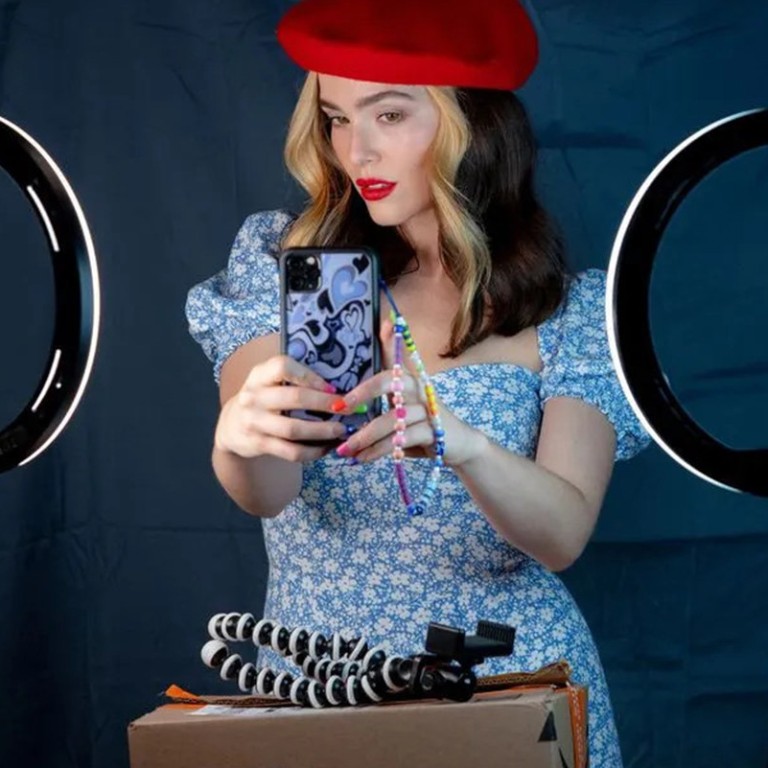
Summer 2022 films show Hollywood recognises its Gen Z audience – they star the likes of Zoey Deutch, explore online culture and activism
- Films like Bodies Bodies Bodies by Halina Reijn, Sharp Stick by Lena Dunham and Not Okay by Quinn Shephard are among the summer 2022 movies to focus on Gen Z
- Reijn calls Gen Z ‘the best age group to examine human behaviour’ and Not Okay’s Zoey Deutch admits she does not ‘remember my life before I existed online’
Here is a Hollywood maths problem for you: feature-film making as we know it is well over 100 years old. Members of Generation Z, those born between 1995 and 2012, are now between 10 and 27. How long will it take the entertainment industry to bridge the gap?
For a number of summer movies, the answer is not just “not long” – it is “now”.
Their twenty-something, predominantly female characters are defined to a significant extent by the way they define themselves online, a mix of memes, questioning, activism, horniness, performative fakeness and the search for an authentic sense of self.
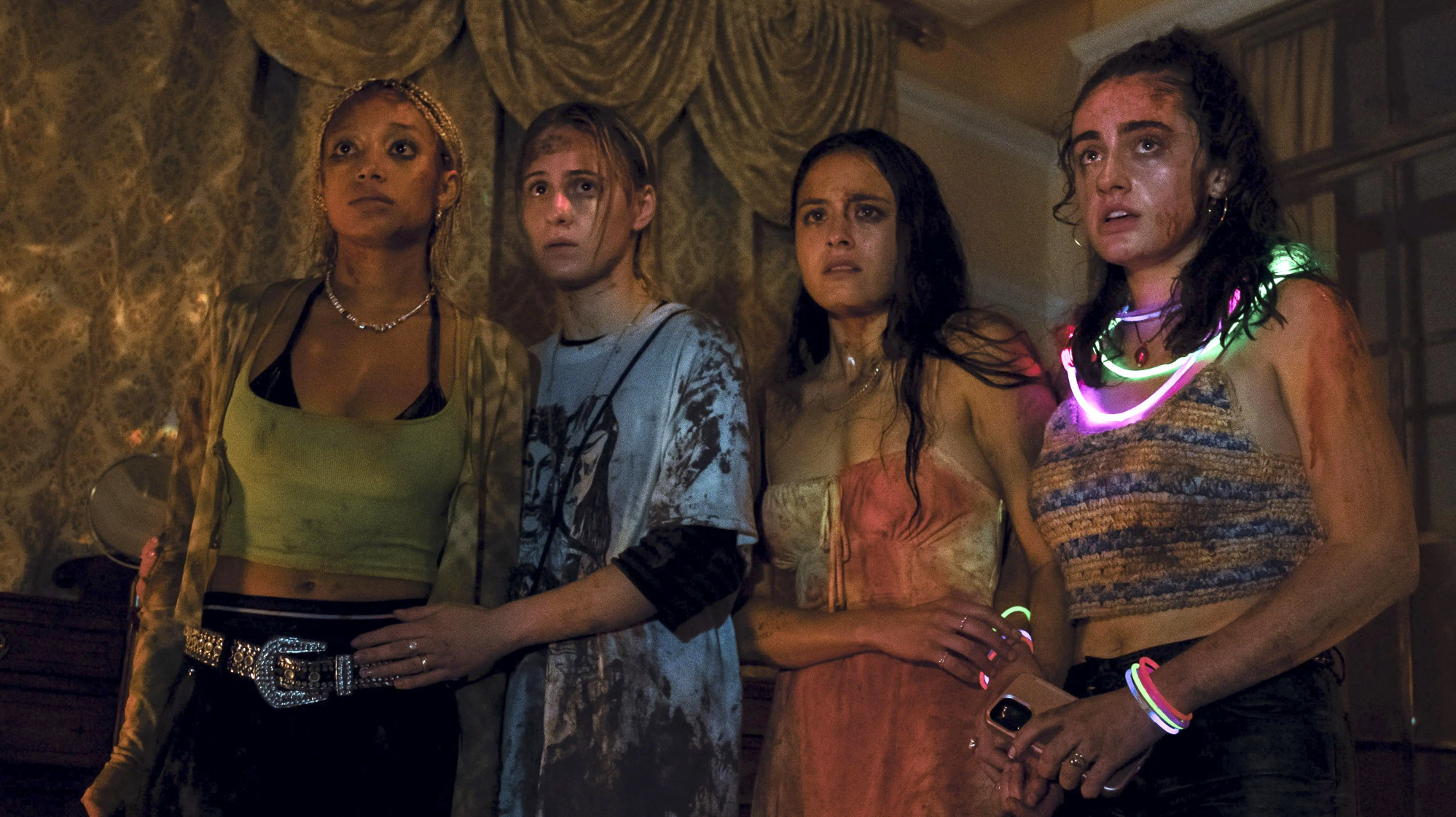
In Bodies Bodies Bodies, based on a story by viral Cat Person author Kristen Roupenian, a group of mostly wealthy, mostly college-age friends meet at one’s family estate to party hard during an impending storm.
They decide to play the game that gives the film its title – a variation on “Mafia” or “Werewolf” in which players try to deduce who among them is hiding information – when the power goes out and people start to die actual violent deaths, one by one.
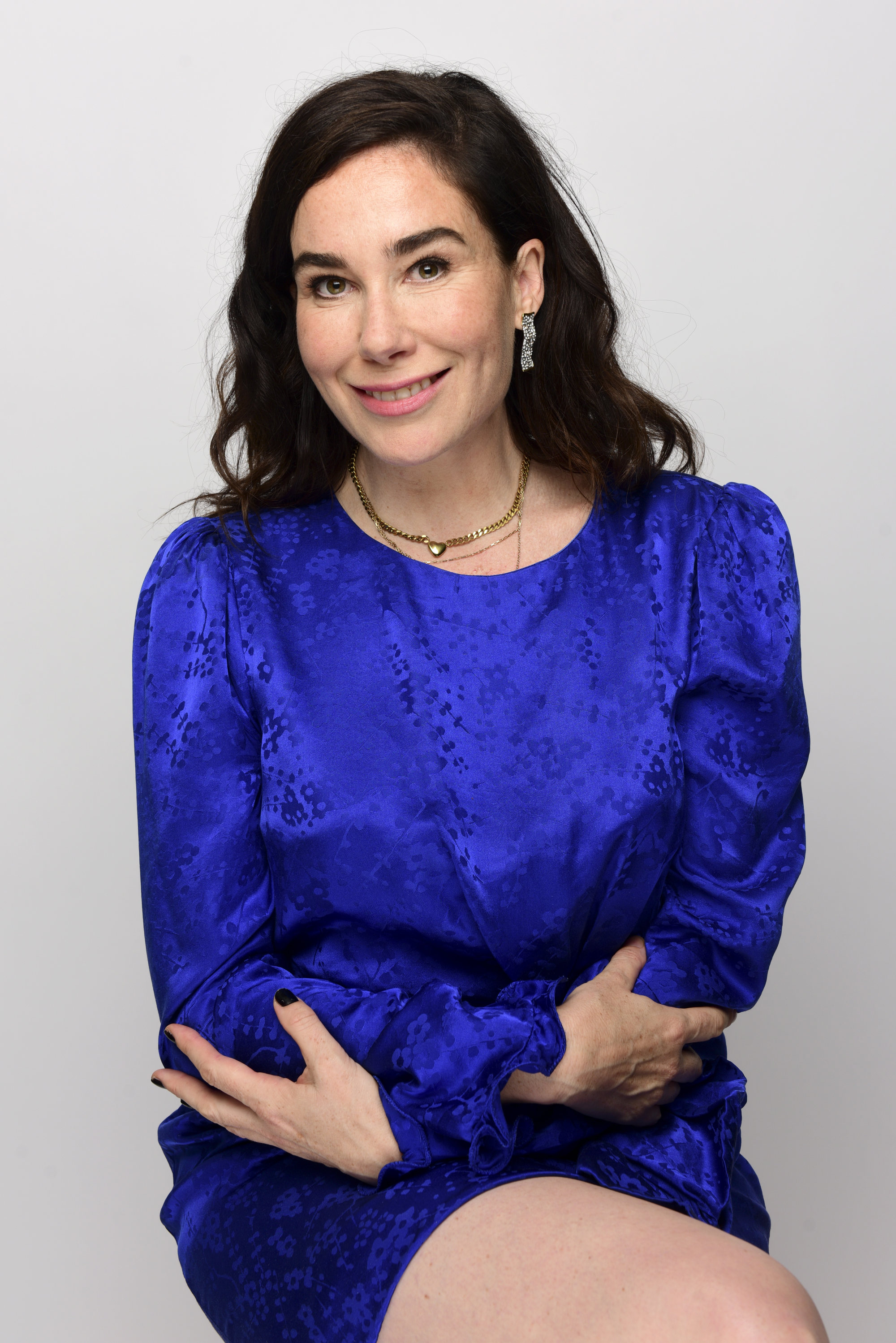
“This is just the best age group to examine human behaviour,” says Reijn, who as an actress was a long-time collaborator with theatre director Ivo van Hove. “When the power goes out and the Wi-fi goes out, they change. The animal comes out. It’s like the Wi-fi is our oxygen. Wi-fi out, demons in.
“They have so much information in their hand. Literally in their hand, and that makes you feel like they know everything,” Reijn, 46, continues. “My characters are almost intellectual bullies, but a lot of the words they’re using, they haven’t lived.
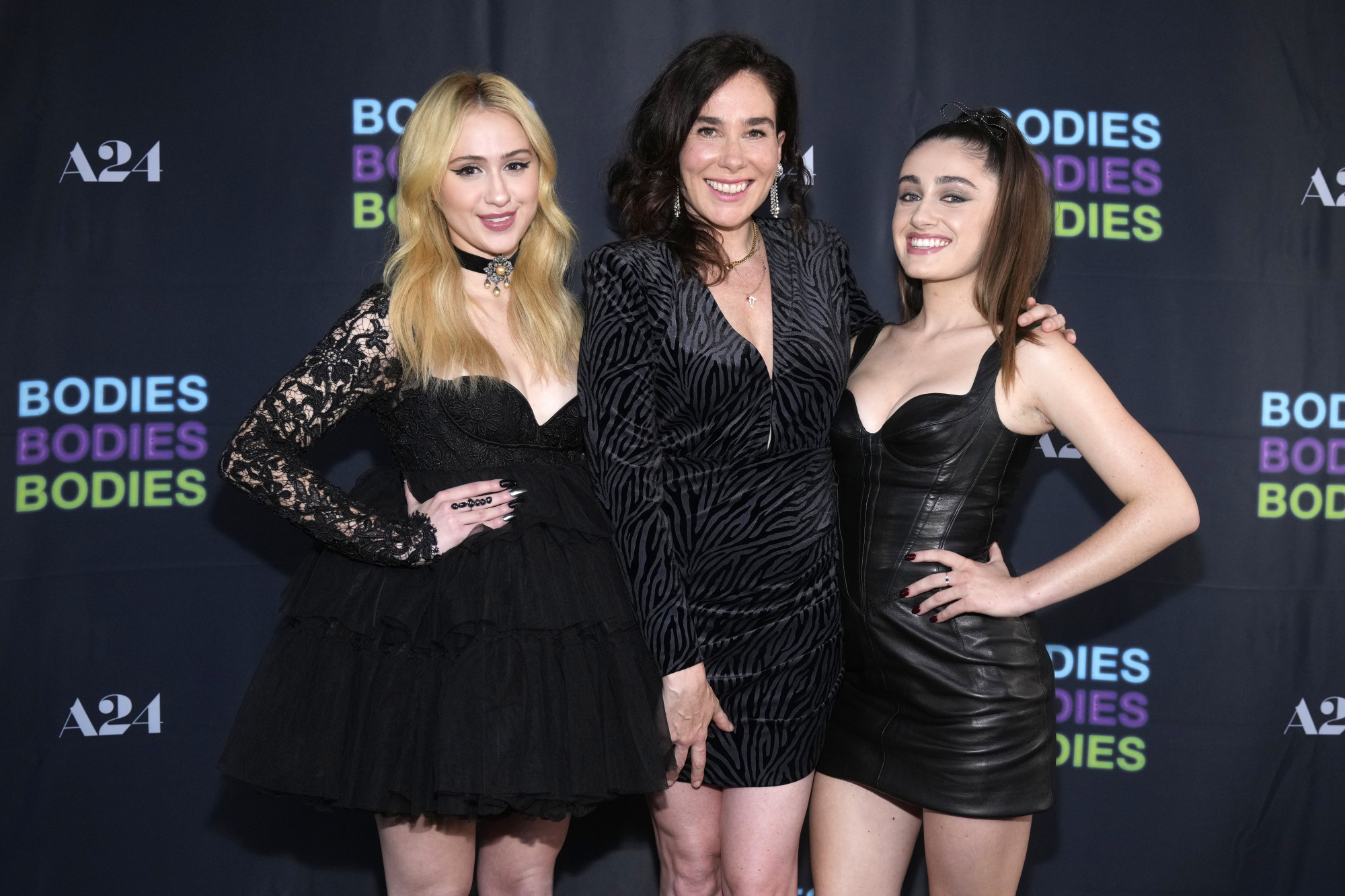
Dunham launched to fame in no small part by exploring her own life as a twenty-something and the lives of those around her with breakthrough feature Tiny Furniture and the HBO series Girls, for which she was nominated for eight Emmy Awards.
Sharp Stick is the first feature film Dunham has directed in more than 10 years, meaning she now has some distance between herself and some of the characters she is depicting on screen.
“Instead of documenting my friends, it feels like I’m like 100, trying to do sociological research,” says Dunham, 36.
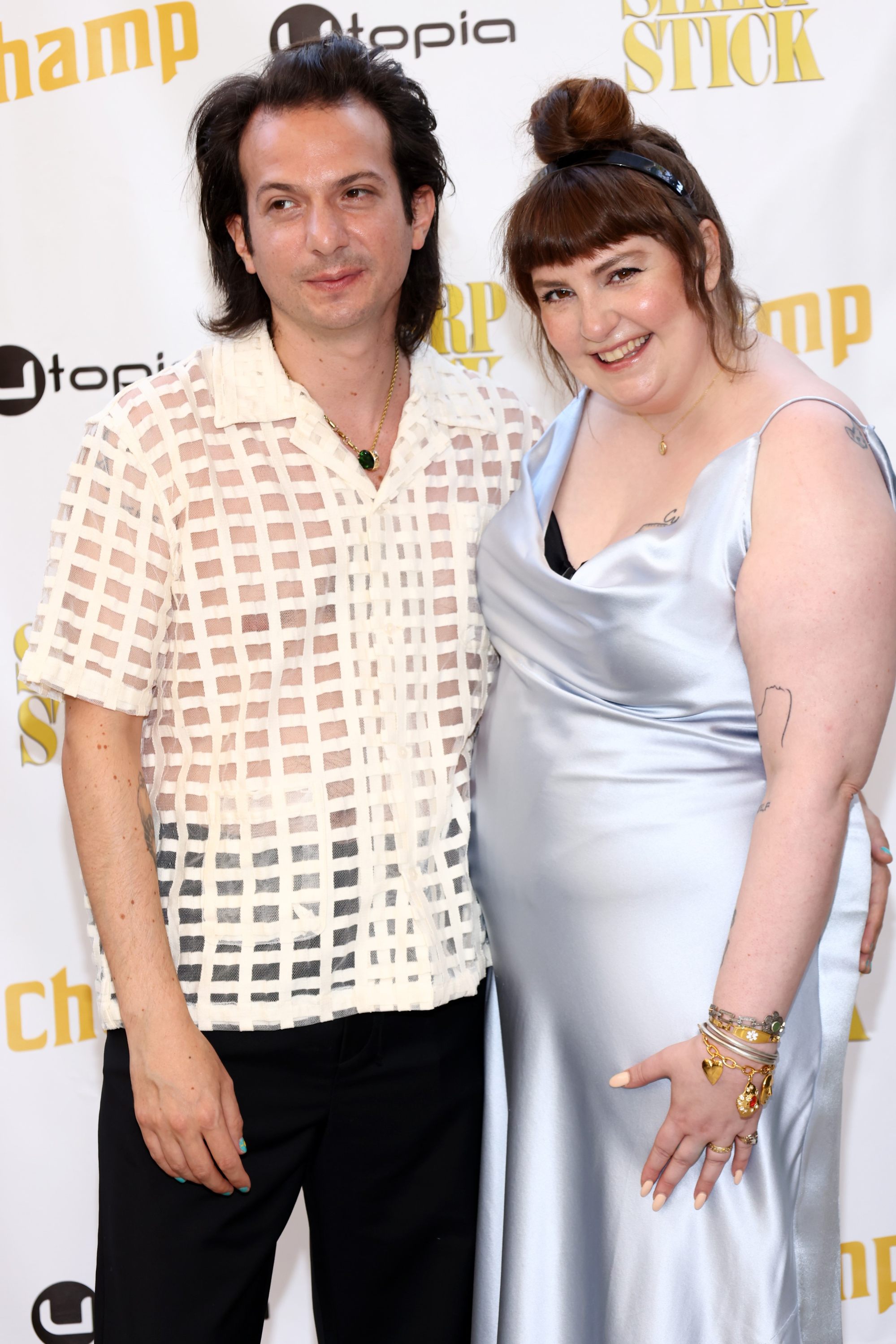
Sharp Stick follows Sarah Jo (Kristine Froseth), a 26-year-old virgin living with her mother, Marilyn (Jennifer Jason Leigh), and sister Treina (Taylour Paige).
Dunham plays Heather, a pregnant thirty-something struggling to hold her life together in the face of her husband Josh’s serial philandering. After Josh (Jon Bernthal) has an affair with Sarah Jo, carer to their special needs son, Sarah Jo sets off on a journey of self-discovery by having sex with men she meets on the internet.
“There’s so much that I love about it and so much I don’t understand about it,” Dunham says of exploring online culture again.
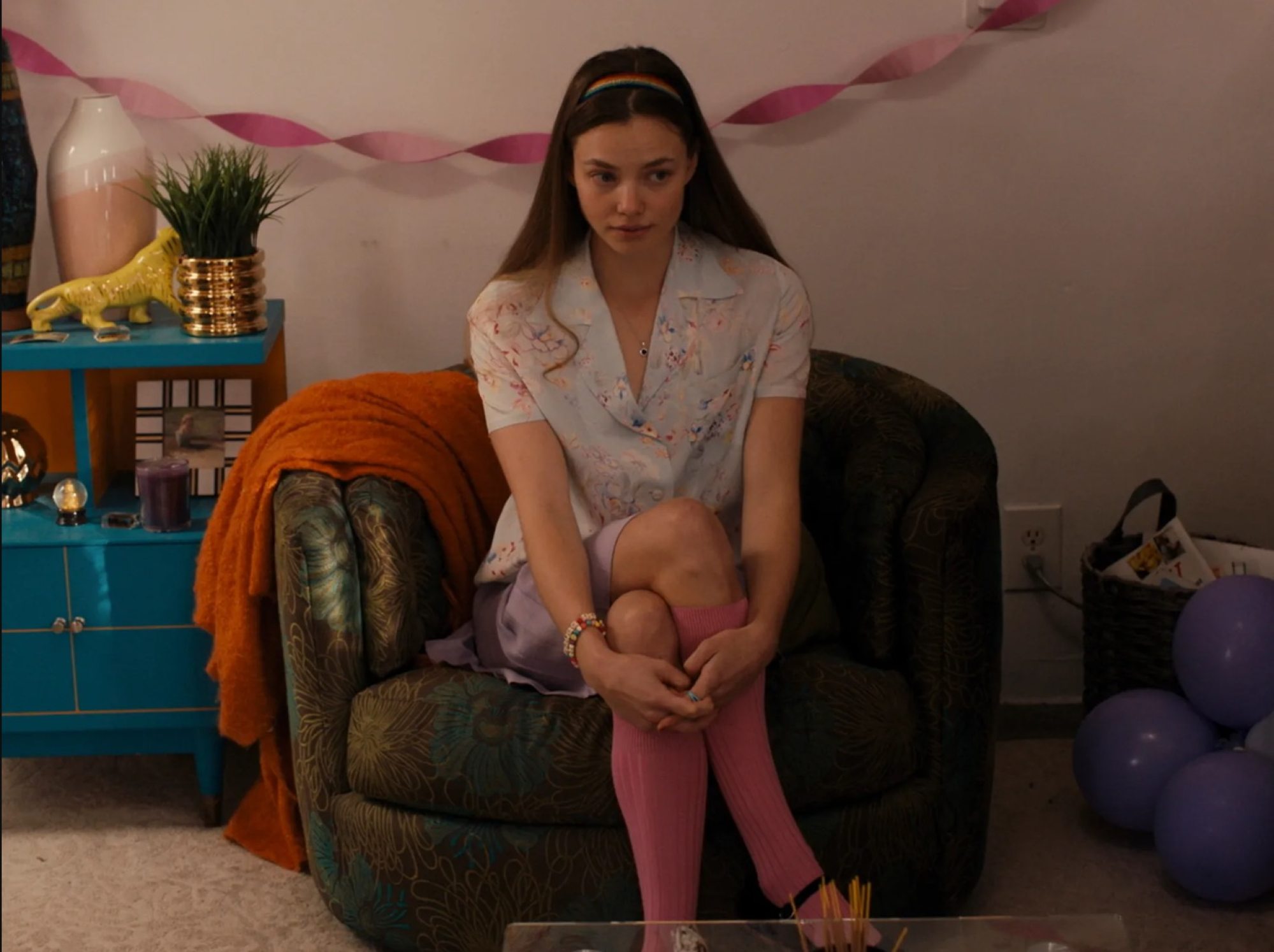
“I wanted to do it from a place that wasn’t a judgmental parody but was instead just sort of meeting these people where they are and understanding what could be important to them and their self-expression about using those tools.”
Of the three films, Not Okay is the most direct satire of contemporary online culture, starring Zoey Deutch as Danni Sanders, a photo editor for an online publication who longs to be a writer.
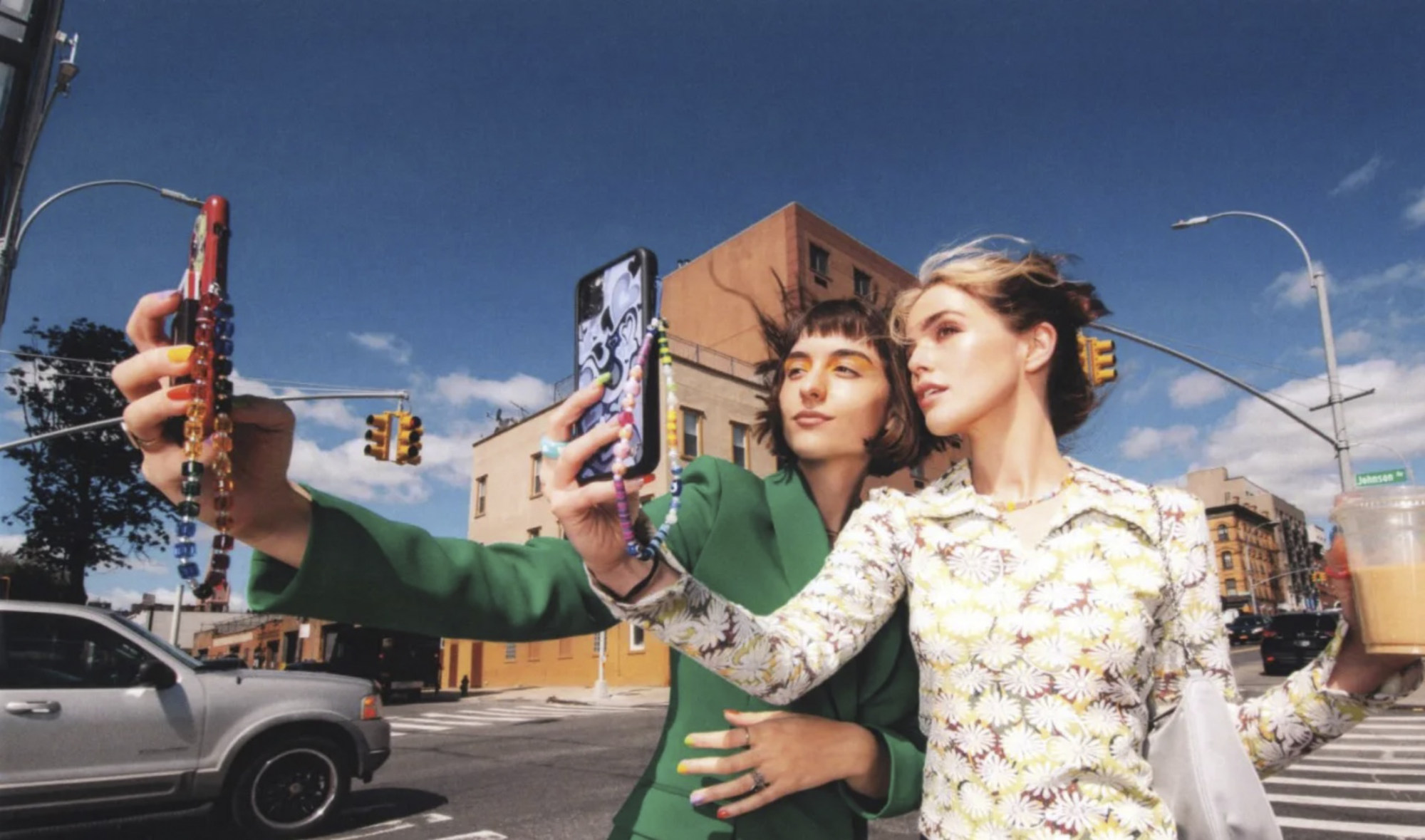
In part to boost her online following and in part to impress a colleague (Dylan O’Brien), she fakes a trip to Paris – where a bombing rocks the city and leaves Danni to be falsely hailed as a brave survivor.
Not Okay begins with a tongue-in-cheek content warning advising the film contains “an unlikeable female protagonist”, and sprinkled throughout the film are real-life internet personalities such as Caroline Calloway, Reece Feldman and Rocco Botte.
Shephard also makes a cameo appearance as part of an online-shaming support group.
“Something I found really heartening about the people that we worked with for cameos was that they immediately understood that the film was satirising a culture and not specifically criticising them,” says Shephard.
“While it is obviously very critical of internet culture, it’s not intended to be like, ‘It’s influencers’ fault’ or ‘Throw your phone in the ocean,’ because the internet is a part of our reality now. And I really tried to paint all sides of how it can be used for the best and the worst behaviour in all of us.”
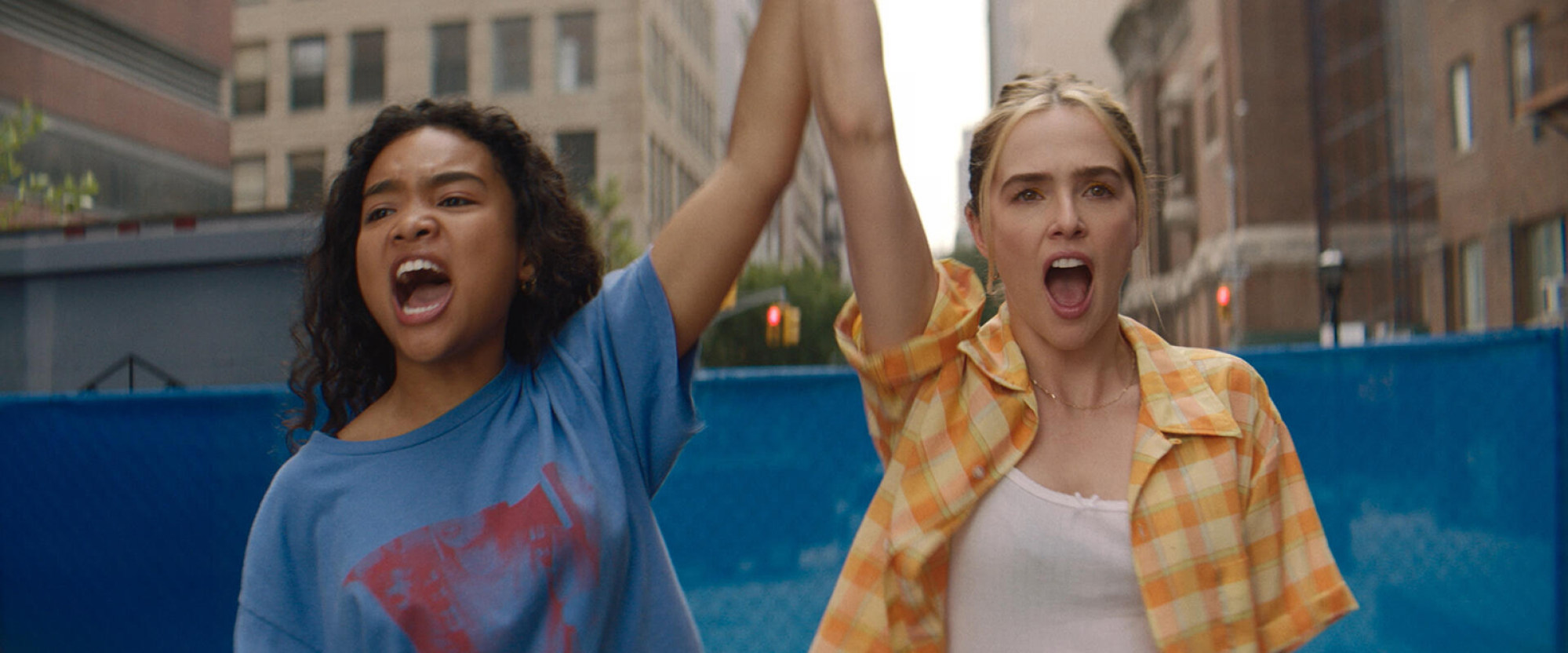
“I do not remember my life before I existed online, which is such a kind of creepy sentence when you hear it at first. But it’s the truth,” says Deutch.
The films all hone in on this distinction between a presentational online persona and the actual self. The gulf between the two can be difficult to navigate.
Move over, millennials, Gen Z is where the fashion action is
“We get asked a lot on this press tour for Bodies if we spend less time on our phones after working on this film,” says Amandla Stenberg, already a showbiz vet at 23. “And that’s really not what it’s about, because the phones are here. They’re not going anywhere.
We have to figure out how to engage with social media responsibly, how to engage with it in a way that maintains humanity
“And it takes us, as a collective, to be the antithesis to that, to … the AI that is shaping our world now, taking our biases and our insecurities and regurgitating it and feeding it back to us.”
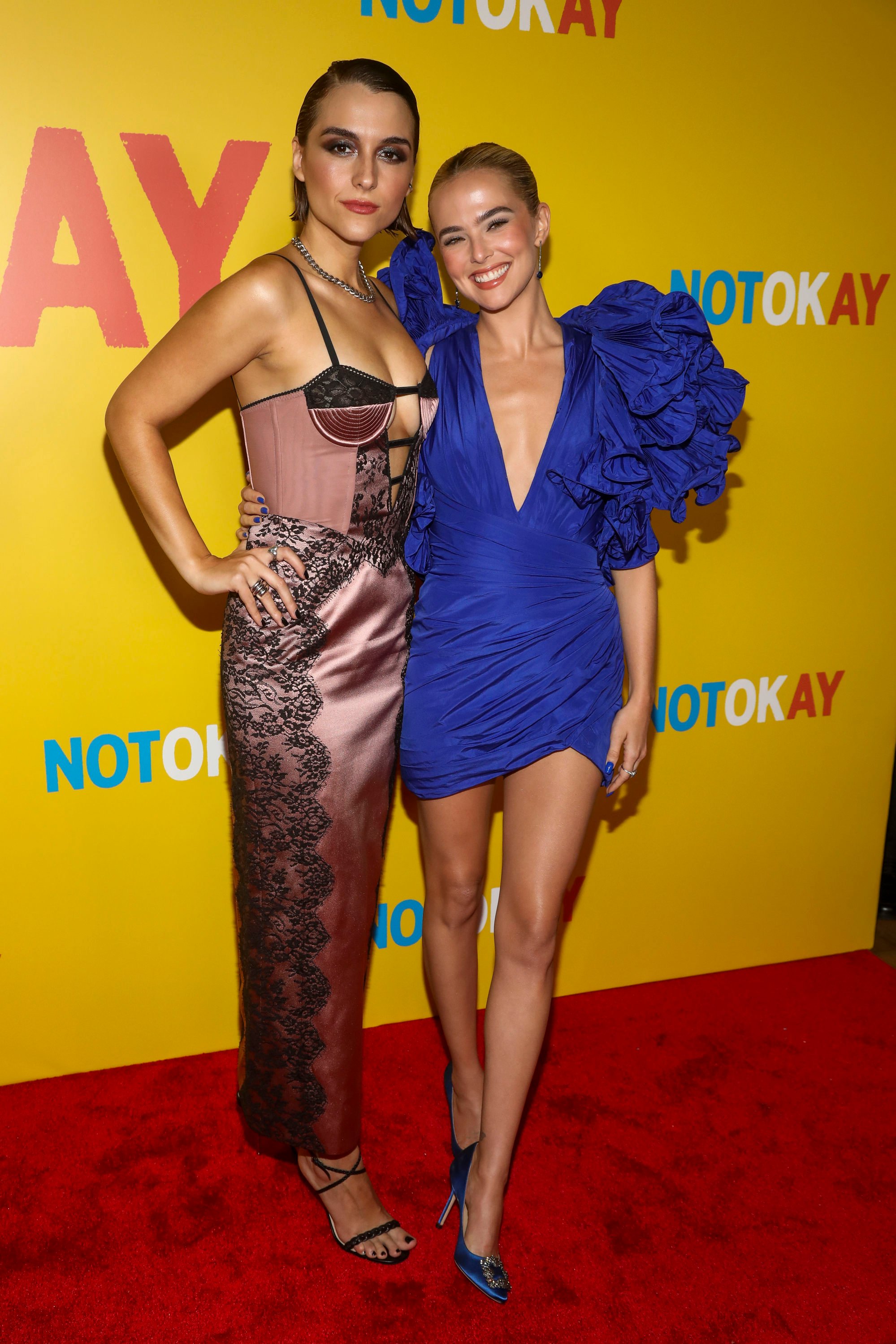
While the filmmakers are all careful to say the audience for their movies is not limited to one generation, they also know who is likely to be their harshest and most public critics.
Armed with smartphones and social media, Gen Z will make their displeasure known quickly and clearly if they feel their on-screen depictions are inaccurate.
“Honestly, I think my use of the word cheugy is now cheugy. Someone’s going to read this article and be like, ‘That’s last year’s word’.”

